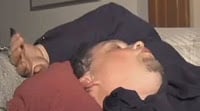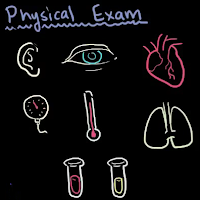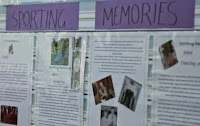SLEEP VIDEO & ARTICLE:
Deep sleep refreshes. Too little deep sleep and sleep apnea can trigger brain changes linked to vascular dementia. Learn what happens. See how you can prevent it.
MINNEAPOLIS – People who have sleep apnea or spend less time in deep sleep may be more likely to have changes in the brain that are associated with dementia, according to a new study published in the December 2014 online issue of Neurology®, the medical journal of the American Academy of Neurology.
Researchers studied people who don’t have as much oxygen in their blood during sleep, which occurs with sleep apnea and conditions such as emphysema.
The study found such people are more likely to have tiny abnormalities in brain tissue, called micro infarcts, than people with higher levels of oxygen in the blood.
These abnormalities are associated with the development of vascular dementia.
Continued below video…
In addition, people who spent less time in deep sleep, called slow wave sleep, were more likely to have loss of brain cells than people who spent more time in slow wave sleep. Slow wave sleep is important in processing new memories and remembering facts. People tend to spend less time in slow wave sleep as they age. Loss of brain cells is also associated with Alzheimer’s disease and dementia.
For the study, 167 Japanese American men had sleep tests conducted in their homes when they were an average age of 84. All were followed until they died an average of six years later, and autopsies were conducted on their brains to look for micro infarcts, loss of brain cells, the plaques and tangles associated with Alzheimer’s disease and Lewy bodies found in Lewy body dementia.
The researchers divided the participants into four groups based on the percentage of time spent with lower than normal blood oxygen levels during sleep, with the lowest group spending 13 percent of their time or less with low oxygen levels and the highest group spending 72 to 99 percent of the night with low oxygen levels. Each group had 41 or 42 men. Of the 41 men in the lowest group, four had micro infarcts in the brain, while 14 of the 42 men in the highest group had the abnormalities, making them nearly four times more likely to have brain damage.
Previous studies have also shown a link between sleep stages and dementia. For this study, the participants were again divided into four groups based on the percentage of the night spent in slow wave sleep. Of the 37 men who spent the least time in slow wave sleep, 17 had brain cell loss, compared to seven of the 38 men who spent the most time in slow wave sleep.
The results remained the same after adjusting for factors such as smoking and body mass index and after excluding participants who had died early in the follow-up period and those who had low scores on cognitive tests at the beginning of the study.
“These findings suggest that low blood oxygen levels and reduced slow wave sleep may contribute to the processes that lead to cognitive decline and dementia,” said study author Rebecca P. Gelber, MD, DrPH, of the VA Pacific Islands Health Care System and the Pacific Health Research and Education Institute in Honolulu, Hawaii. “More research is needed to determine how slow wave sleep may play a restorative role in brain function and whether preventing low blood oxygen levels may reduce the risk of dementia.”
Gelber noted that a previous study showed that use of a continuous positive airway pressure machine (CPAP) for obstructive sleep apnea may improve cognition, even after dementia has developed.
There was no association between the sleep measures and the level of plaques and tangles.
For the United States NIH Infograph on getting better sleep, see:
Sleep Disorders & Insufficient Sleep: Improving Health through Research
The study was supported by the National Institute on Aging, Alzheimer’s Association, Hawaii Community Foundation and Department of Veterans Affairs Pacific Islands Health Care System. To learn more about sleep and brain health, please visit www.aan.com/patients.
The American Academy of Neurology, an association of more than 28,000 neurologists and neuroscience professionals, is dedicated to promoting the highest quality patient-centered neurologic care. A neurologist is a doctor with specialized training in diagnosing, treating and managing disorders of the brain and nervous system such as Alzheimer’s disease, stroke, migraine, multiple sclerosis, concussion, Parkinson’s disease and epilepsy.
For more information about the American Academy of Neurology, visit http://www.aan.com or find us on Facebook, Twitter, Google+ andYouTube.













ResMed CPAP therapy works for many OSA sufferers. Talking with your doctor, getting tested and beginning a ResMed CPAP therapy process is a great start to a better life treatment of obstructive sleep apnea syndrome by rapid maxillary expansion.